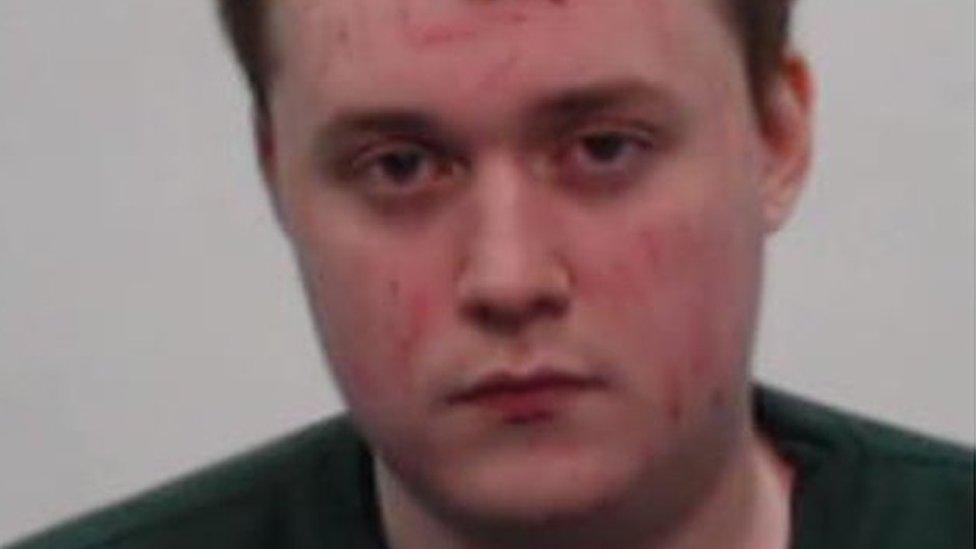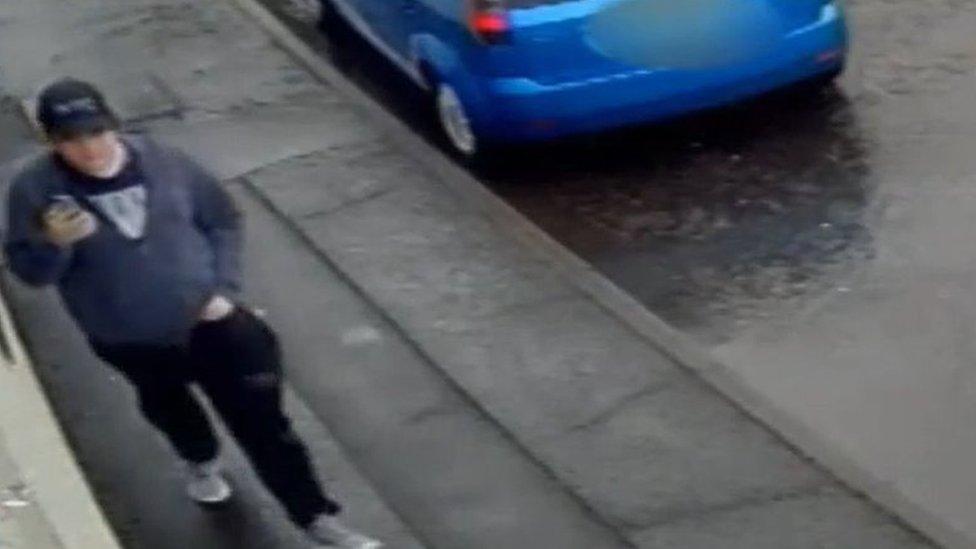Glenrothes man fails to have terrorism sentence cut
- Published

Sam Imrie was convicted last year over a terror plot to burn down a Fife mosque
A man who idolised right-wing mass killers and hated Muslims has failed in a bid to have his prison sentence for terrorism offences cut.
Sam Imrie, 24, who admired Christchurch mosque mass murderer Brenton Tarrant, is serving a seven and-a-half year jail term.
He was arrested in July 2019 after posting on social media he was going to attack Fife Islamic Centre, Glenrothes.
Imrie was convicted on two charges of breaching the Terrorism Act.
Following a trial in Edinburgh in October 2021, he was also convicted of wilful fire raising, drink-driving and possessing "extreme" indecent images of children.
The High Court in Edinburgh heard how Imrie had acquired an arsenal of weapons in his home in Glenrothes, Fife. They included a combat knife, nunchucks, an axe, a black-handled knife, a hammer, a rifle scope and a wooden-handled lock knife.
Police also recovered a "manifesto" entitled the "Great Replacement" by far-right terrorist Tarrant, who murdered 51 people in his March 2019 attacks in New Zealand.
They also recovered a manifesto written by Anders Breivik, who killed 77 people in attacks in Norway in 2011.
Nazi ideology
Police also discovered computer equipment containing thousands of images glorifying fa- right terrorism attacks and Nazi ideology.
On Friday, defence solicitor advocate Iain Paterson told appeal judges Lord Matthews and Lord Malcolm their colleague Lord Mulholland had not followed correct sentencing procedures when jailing Imrie.
Mr Paterson said if he had done so, Imrie would have received a lesser sentence.
But the appeal judges concluded that Lord Mulholland, who sentenced him in December last year, had acted correctly.
Lord Matthews said: "We are unable to detect any error in his approach. It cannot be said that the sentence imposed by the judge was excessive."
'Childhood trauma'
Mr Paterson said his client had experienced "trauma" in his life and that Lord Mulholland should have taken this into account.
He told the Court of Criminal Appeal: "During his childhood, Mr Imrie experienced a fairly traumatic experience when he was assaulted and lost his teeth and stopped attending school.
"Thereafter, he continued to withdraw from life and became more isolated from his family and his friends. He would stay in his bedroom and spend his days looking at his computer and drinking alcohol.
"His background is one which has arisen from childhood trauma."
Related topics
- Published2 December 2021

- Published26 October 2021

- Published25 October 2021

- Published11 October 2021
